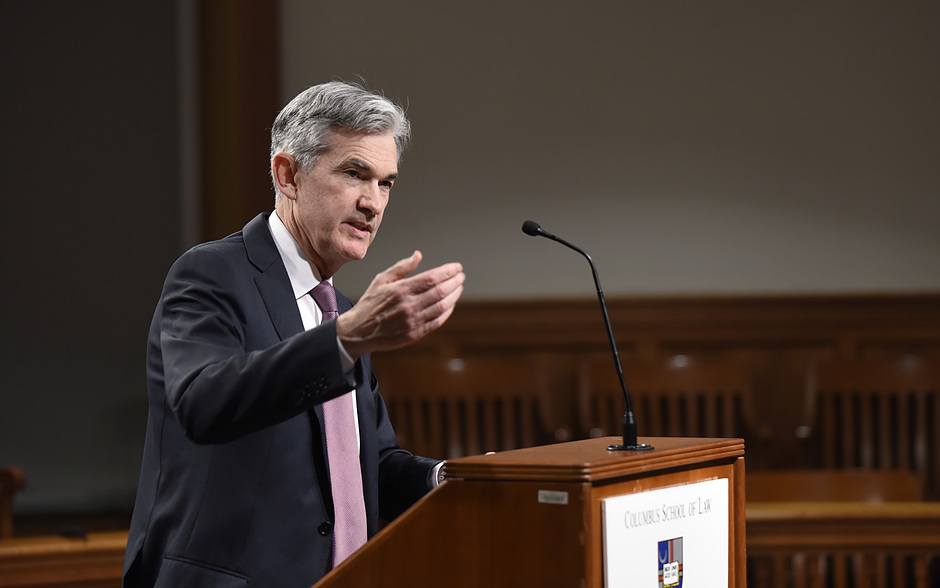Fed chief Powell speaks, along with several other Feds

Outlook
Today we get the service sector PMIs and the Beige Book. Fed chief Powell speaks, along with several other Feds. The Powell event is at the NY Times at about 1:30 ET today and has the potential for plenty of tap-dancing
Two things: the labor market may be cooling somewhat but not to a scary extent—and workers are still quitting voluntarily for better jobs elsewhere. The ADP number today should be 158,000 from 233,000, according to Bloomberg.
And looking to Fed comments about the Dec policy meeting is not yielding anything useful. Yesterday San Francisco Fed Daly said “We have to continue to recalibrate policy - now, whether it will be in December or sometime later, that's a question we'll have a chance to debate and discuss in our next meeting. I think we need to have an open mind here."
But Chicago Fed Goolsbee was less doubtful and said "Over the next year it feels to me like rates come down a fair amount from where they are now, but we meet every six weeks because the conditions change."
So while the entire rest of the world is frantically taking actions ahead of tariffs or at least debating how to deal with it, the Feds are pretending that because it hasn’t happened yet, it doesn’t need to be spoken of. This is politically correct but as we say in economics, bah.
The majority continue to expect a cut in December, albeit with actions in 2025 getting pared back.
Central bank meetings
RBA December 9-10.
BoC December 11.
ECB December 12.
Fed December 18.
BoE December 19.
Bank of Japan Dec 19.
Forecast
We have choppy conditions in a dreadfully narrow range. Nobody has a clue where the euro will go next, with no valid argument for a rallyette except overbuilt positions in the dollar and other currencies. But the economics and the politics each point to a weaker euro—see the parity discussion below.
Oddball Tidbit: Why are sovereign yields falling when the Trump threat should have them rising? Reuters columnist Dolan says “It's not at all obvious as to why. But it may simply reflect trade war anxiety and related world growth concerns, or fears of another geopolitical shock with a new government due in Washington, or maybe even thoughts of sliding oil prices if U.S. drilling goes up a gear. Or maybe it's all three.
“What this is not is a market overly anxious about a go-go world economy, re-aggravated inflation or excessive government debt.”
It’s not just the US, but even more noteworhy in Europe and China. “Since Nov. 7, the 10-year German bund yield has plummeted almost 50 bps, within a whisker of breaking 2% for the first time since the start of January…. even French 10-year yields have plunged as much as 40 bp since Nov. 7,.
“China, facing investment curbs and eye-watering tariff threats from both outgoing and incoming U.S. administrations, saw its 10-year sovereign borrowing rates plumb sub-2% levels for the first time on record this week, a drop of almost 15 bps over the same time period.”
Huh” The first reason that springs to mind is that positioning had been extreme and is now being pared back ahead of year-end. Or expectations of a rising dollar/devaluing currencies can’t go on forever and trade wars will hit the US economy, too.
Reuters brings up an old-timey idea—bonds are getting priced to deliver income to savers. In other words, competition for equities where the dividend yield went south a long time ago due to QE. Rising uncertainty points investors toward a sure income stream.
Something to worry about: Forecasts are widespread of the euro hitting parity, seen only a few times since its inception and the last time in August 2022. Parity is a problem in its own right. The psychology is significant, as is every round number, but parity carries the crown.
Bloomberg writes “The risk that a country could tumble out of the euro remains alive, if remote, and a fall to parity could embolden populist politicians who oppose the single currency. Already Germany’s right-wing AfD party is planning an election campaign advocating the country’s exit from the EU and the euro.”
Well, no. Comments from a few politicians may identify a threat, but do not make the threat probable. This is different from the Greek problem in 2012, when top politicians talked about leaving the eurozone with a fair amount of credibility. Even then, the likelihood of Grexit was never more than (say) 20%--but probably far less in reality, since a strong majority of Greeks favored staying in the eurozone and keeping the euro. One of the worst moments—reports of the Greek Treasury seeking information from the Swiss currency printer.
We haven’t seen a German survey, but we’d bet ten bucks the majority of Germans embrace the eurozone, too, and not just because German exports to the rest of the eurozone are a very big deal. Also to be considered is the national commitment to be friendly to neighbors and guilt/shame still lingering two generations later over having started WW II and behaved so abominably.
Bloomberg brings up intervention, too, and concludes it is not on the table. We say the Bloomberg series explaining the dollar’s preeminence (if not domination) in the currency world is a useful exercise, if only because so many newcomers have no historical perspective. But the story is incomplete and often misleading.
FX Matrix co-author Schmelzer comments that “the allure of ‘parity’ is so great that at some point soon there has to be a push (or a pull) towards it. Getting decisively under $1.0300 would mean at least of test of parity.” In addition, the French situation can cause panic. “And French problems in general mean the eurozone's 3-legged stool is getting awfully wobbly and that is yet another reason to move to parity.”
Tidbit: The US economy is two-thirds the consumer and the consumer is hot to trot. Forget those stories about credit card delinquencies on the rise—Americans spent $41.1 billion over the 5-day Thanksgiving holiday. This is not big home improvement projects or expensive refrigerators—it’s toys, shampoo, jewelry, handbags.
Spending on Black Friday was $10.8 billion. Spending on Cyber Monday was $13.3 billion. The FT reports Adobe expects “sales across the full holiday season from November 1 to December 31 will hit $240.8 billion, a rise of 8.4 per cent from last year.”
We’d like to know how much of that stuff was imported from China. At a guess, at least 40%. Won’t it be interesting to see what happens next year after Trump applies tariffs?
This is an excerpt from “The Rockefeller Morning Briefing,” which is far larger (about 10 pages). The Briefing has been published every day for over 25 years and represents experienced analysis and insight. The report offers deep background and is not intended to guide FX trading. Rockefeller produces other reports (in spot and futures) for trading purposes.
To get a two-week trial of the full reports plus traders advice for only $3.95. Click here!
This is an excerpt from “The Rockefeller Morning Briefing,” which is far larger (about 10 pages). The Briefing has been published every day for over 25 years and represents experienced analysis and insight. The report offers deep background and is not intended to guide FX trading. Rockefeller produces other reports (in spot and futures) for trading purposes.
To get a two-week trial of the full reports plus traders advice for only $3.95. Click here!
Author

Barbara Rockefeller
Rockefeller Treasury Services, Inc.
Experience Before founding Rockefeller Treasury, Barbara worked at Citibank and other banks as a risk manager, new product developer (Cititrend), FX trader, advisor and loan officer. Miss Rockefeller is engaged to perform FX-relat

















